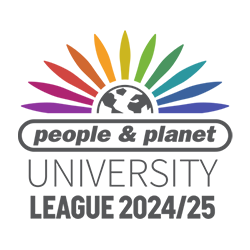-
Study
-
Undergraduate
- Search for a Course
- Undergraduate Open Day & Events
- Application Guides
- Northumbria University UCAS Exhibitions
- Foundation Years
- Undergraduate Fees & Funding
- School & College Outreach
- Continuing Professional Development
-
Postgraduate
- Postgraduate Study Degree
- Postgraduate Research Degrees
- Postgraduate Open Days and Events
- Postgraduate Fees & Funding
- Flexible Learning
- Thinking about a Masters?
- Continuing Professional Development
- Change Direction
-
Student Life
- The Hub - Student Blog
- Accommodation
- Life in Newcastle
- Support for Students
- Careers
- Information for Parents
- Students' Union
- Northumbria Sport
- Be Part of It
-
-
International
International
Northumbria’s global footprint touches every continent across the world, through our global partnerships across 17 institutions in 10 countries, to our 277,000 strong alumni community and 150 recruitment partners – we prepare our students for the challenges of tomorrow. Discover more about how to join Northumbria’s global family or our partnerships.
View our Global Footprint-
Applying to Northumbria
- European Union
- Our London Campus
- Northumbria Pathway
- International Events
- Entry Requirements and Country Representatives
- Global Offices
-
Northumbria Language Centre
- Faculty Requirements
- Acceptable English Requirements
- Pre-sessional English Language and Study Skills
- Academic Language Skills Programmes (ALS)
-
International Fees, Funding & Scholarships
- International Undergraduate Fees
- International Undergraduate Funding
- International Masters Fees
- International Masters Funding
- International Postgraduate Research Fees
- International Postgraduate Research Funding
- International Money Matters
-
Life at Northumbria
- International student support
- Careers
-
International Mobility
- Current Northumbria Students
- Incoming Exchange Students
-
-
Business
Business
The world is changing faster than ever before. The future is there to be won by organisations who find ways to turn today's possibilities into tomorrows competitive edge. In a connected world, collaboration can be the key to success.
More on our Business Services -
Research
Research
Northumbria is a research-rich, business-focused, professional university with a global reputation for academic quality. We conduct ground-breaking research that is responsive to the science & technology, health & well being, economic and social and arts & cultural needs for the communities
Discover more about our Research -
About Us
-
About Northumbria
- Our Strategy
- Our Staff
- Place and Partnerships
- Student Profiles
- Alumni Profiles
- Leadership & Governance
- Academic Departments
- University Services
- History of Northumbria
- Contact us
- Online Shop
-
-
Alumni
Alumni
Northumbria University is renowned for the calibre of its business-ready graduates. Our alumni network has over 246,000 graduates based in 178 countries worldwide in a range of sectors, our alumni are making a real impact on the world.
Our Alumni - Work For Us
What will I learn on this module?
From both a practical and theoretical view you will learn to think about what project management means, the process of project management and how to manage projects by focusing on several professional project management aspects, such as scope management, cost management, and schedule management.
The module will develop your professional skills and confidence in managing projects using various techniques and drawing on your academic study of contemporary project management literature. You will explore a range of approaches plus alternative views in order to challenge assumptions and identify ways to make project management more meaningful and sustainable. You will become aware of the role of professional techniques and methodologies as an aid to managing projects. Alongside this practical learning, you will develop a critical understanding of the importance of integrating social and ethical criteria into project planning and operation.
How will I learn on this module?
Each module session follows a similar structure of Learn, Explore Further and Apply. All learning materials and resources are accessible via our virtual learning environment.
In this module you are empowered as partners in the learning process, taking responsibility for your own learning.
The self-directed aspects of this module are supported by guidance at the module level through a teaching and learning plan and learning set guidance and provided via the Virtual Learning Environment (VLE). The module has prepared learning notes in which key concepts, theories and practice in project management are introduced.
On a weekly basis, you will be referred by the teaching and learning plan and in learning notes to various chapters in the core textbook. After these reading these notes you have practical tasks to work on. These tasks aim at providing you with the opportunity to practise the tools and techniques you have learnt in the notes and consolidate further your understanding of project management.
As part of the modules continuous learning strategy you will be reflecting upon the project management approaches and techniques you’ve been exposed to on a weekly basis and comparing their application in real project settings, sharing this learning with fellow students by means of the module discussion board.
You will then submit an individual assignment at the end to reflect and demonstrate your understanding of project management.
How will I be supported academically on this module?
A range of approaches are adopted to accelerate your learning in this module.
During the first week of this module, you will receive information about the module and Teaching & Learning Plan. The teaching and learning plan (TLP) sets out
• Learning outcomes and overall module and programme aims
• Teaching, learning and assessment strategy
• Teaching schedule
• Directed reading references (text and journals) and core texts for the module
During this module your module tutor will provide academic support including:
• Delivering on—line materials
• Providing guidance in relation to assignments
• Development of key resources, made available through the VLE
• Assessing assignments and assess or review any other agreed summative or formative outputs as appropriate
You will be supported by a team of academic experts and will have the opportunity to receive feedback on on-going work giving you the opportunity to respond directly.
Where appropriate, students may also be directed to engage with Study Skills +, or other resources offered through the University Student Support Services such as Dyslexia Support.
The Library is open 24 hours a day and E-Learning Portal houses all your module documents including your timetable. These services can be accessed on a range of devices
The module will also have an e-reading list which directs learners to specific reading for each session. This includes direct access to repositories, journal articles and other academic sources. You will also be provided with access to a significant set academic research sources via the Northumbria University library portal.
You will also have opportunities to receive formative feedback from your tutor in response to opinions you express and issues you raise during workshop sessions and face-to-face or online tutorials. These formative feedback sessions are formally scheduled at key points throughout the module.
What will I be expected to read on this module?
All modules at Northumbria include a range of reading materials that students are expected to engage with. Online reading lists (provided after enrolment) give you access to your reading material for your modules. The Library works in partnership with your module tutors to ensure you have access to the material that you need.
What will I be expected to achieve?
Knowledge & Understanding:
MLO1: You will demonstrate your understanding of a range of theories and approaches to contemporary project management.
MLO2: You will engage with a range of professional project management techniques in order to apply knowledge to complex problems and identify appropriate and sustainable project management solutions.
Intellectual / Professional skills & abilities:
MLO3: You will develop the ability to apply a range of professional techniques and specialist project management software through practical exercises.
Personal Values Attributes (Global / Cultural awareness, Ethics, Curiosity) (PVA):
MLO4: You will develop and reinforce the characteristics of a Northumbria graduate as you reflect on problems and challenge conventional solutions and show innovation in applying concepts and theories to different project scenarios.
How will I be assessed?
• Formative assessment
Engaging with learning tasks in the practical exercise sessions will provide formative feedback in terms of general understanding of different aspects in project management. Online discussion forum (via the tutor-supported module discussion board) will be used to facilitates ongoing dialogue with opportunities for formative feedback.
• Summative assessment The final assessment will be a 2,000-word individual essay (100%). You will include the following essential elements:
i) demonstrate your understanding of a range of theories and approaches to contemporary project management;
ii) analyse how you engaged with project management techniques and methods;
iii) evaluate the use and effectiveness in applying specialist software technology within the context of the module.
This assessment will assess MLO1, MLO2, MLO3 and MLO4.
Pre-requisite(s)
None
Co-requisite(s)
None
Module abstract
‘Project Management’ will develop your knowledge and skills as a project management practitioner. You will be able to draw upon a wide range of both traditional and contemporary techniques and approaches to managing projects more effectively. Through experience and reflection, you will challenge current thinking whilst also gaining exposure to alternative and new ideas about managing projects sustainably and ethically in a global society.
You will have the opportunity to work on a real or case study project. You will evaluate your experience of using project management tools and techniques, comparing this with the existing approaches espoused in the literature, through writing up your processes, strategies and reflections in an individual report which accounts for 100% of the assessment.
As a graduate, you will almost certainly work on projects and in teams. The skills developed on ‘Project Management’ will equip you with key attributes of a Northumbria University graduate’s portfolio for employability.
Course info
Credits 20
Level of Study Undergraduate
Mode of Study 18 months Distance Learning
Department Newcastle Business School
Location City Campus, Northumbria University
City Newcastle
Start Upcoming Intakes - April 2025, July 2025, October 2025.
Business and Management BA (Hons) Top Up
- Business and Management BA (Hons) - Frequently Asked Questions
- Business and Management BA Top Up - Module Orders for Upcoming Intakes
- Four Transferable Skills You’ll Learn on Our Business and Management BA
- “What is a Top Up Degree?”- Your Questions Answered
- What Are My Options After a Foundation Degree?
- Questions You May Have After Your HND, Answered
- “Why I Chose to Study a Top Up Degree After My HND”
All information is accurate at the time of sharing.
Full time Courses are primarily delivered via on-campus face to face learning but could include elements of online learning. Most courses run as planned and as promoted on our website and via our marketing materials, but if there are any substantial changes (as determined by the Competition and Markets Authority) to a course or there is the potential that course may be withdrawn, we will notify all affected applicants as soon as possible with advice and guidance regarding their options. It is also important to be aware that optional modules listed on course pages may be subject to change depending on uptake numbers each year.
Contact time is subject to increase or decrease in line with possible restrictions imposed by the government or the University in the interest of maintaining the health and safety and wellbeing of students, staff, and visitors if this is deemed necessary in future.
Useful Links
Find out about our distinctive approach at
www.northumbria.ac.uk/exp
Admissions Terms and Conditions
northumbria.ac.uk/terms
Fees and Funding
northumbria.ac.uk/fees
Admissions Policy
northumbria.ac.uk/adpolicy
Admissions Complaints Policy
northumbria.ac.uk/complaints













